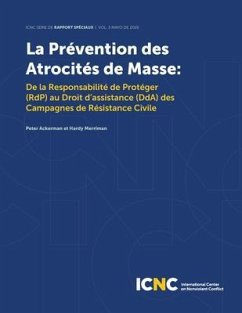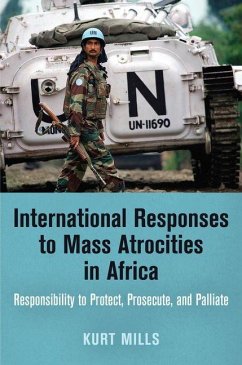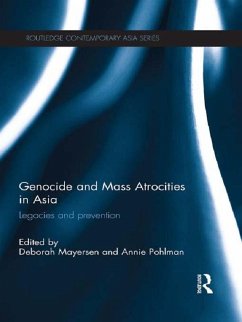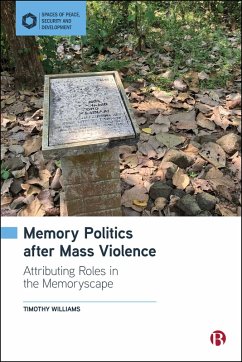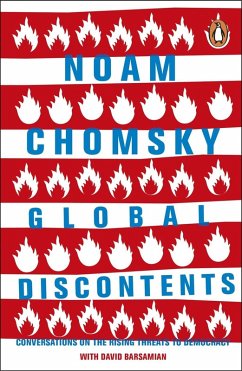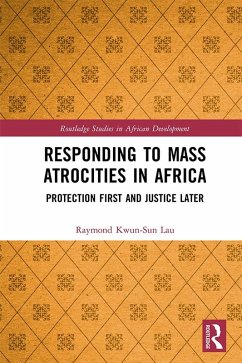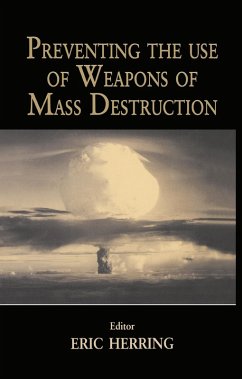
Preventing Mass Atrocities (eBook, ePUB)
From a Responsibility to Protect (RtoP) to a Right to Assist (RtoA) Campaigns of Civil Resistance
Versandkostenfrei!
Sofort per Download lieferbar
2,99 €
inkl. MwSt.
Weitere Ausgaben:

PAYBACK Punkte
1 °P sammeln!
Events of the last decade demand new approaches to atrocity prevention that are adaptable, innovative and independent of a state-centered doctrine. With the aim of reducing risk factors such as civil war, Ackerman and Merriman argue for a new normative framework called The Right to Assist (RtoA), which would strengthen international coordination and support for nonviolent civil resistance campaigns demanding rights, freedom and justice against non-democratic rule.RtoA would:1. engage a wide range of stakeholders such as NGOs, states, multilateral institutions and others;2. bolster various fact...
Events of the last decade demand new approaches to atrocity prevention that are adaptable, innovative and independent of a state-centered doctrine. With the aim of reducing risk factors such as civil war, Ackerman and Merriman argue for a new normative framework called The Right to Assist (RtoA), which would strengthen international coordination and support for nonviolent civil resistance campaigns demanding rights, freedom and justice against non-democratic rule.
RtoA would:
1. engage a wide range of stakeholders such as NGOs, states, multilateral institutions and others;
2. bolster various factors of resilience against state fragility; and
3. incentivize opposition groups to sustain commitment to nonviolent strategies of change.
The adoption of this doctrine can reduce the probability of violent conflict that significantly heightens atrocity risk, while increasing the prospects for constructive human development.
RtoA would:
1. engage a wide range of stakeholders such as NGOs, states, multilateral institutions and others;
2. bolster various factors of resilience against state fragility; and
3. incentivize opposition groups to sustain commitment to nonviolent strategies of change.
The adoption of this doctrine can reduce the probability of violent conflict that significantly heightens atrocity risk, while increasing the prospects for constructive human development.
Dieser Download kann aus rechtlichen Gründen nur mit Rechnungsadresse in A, D ausgeliefert werden.




